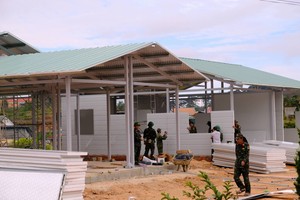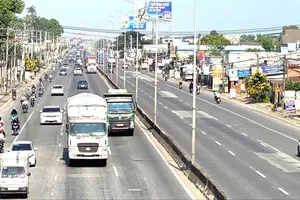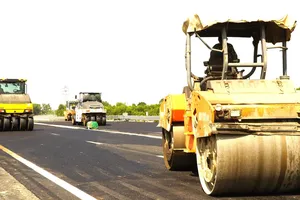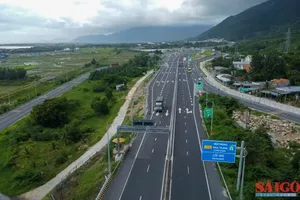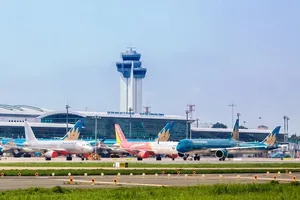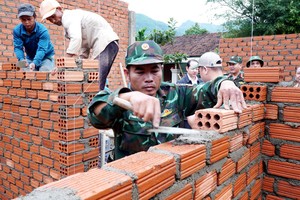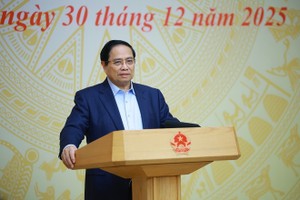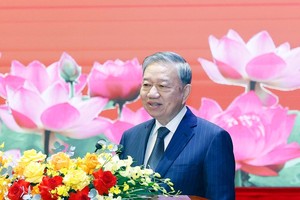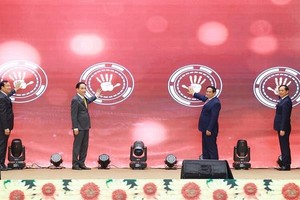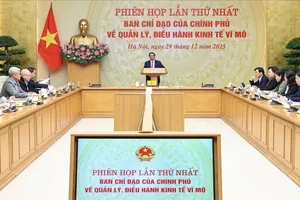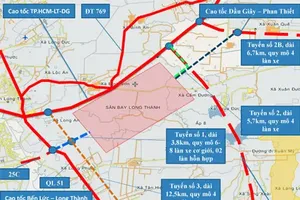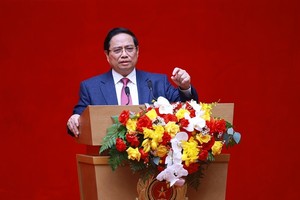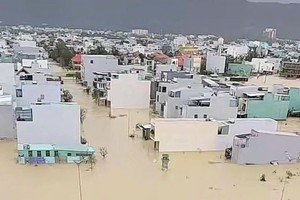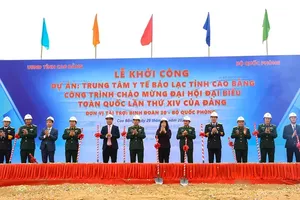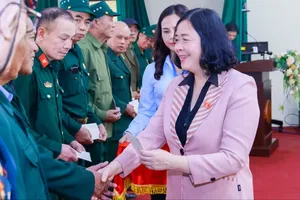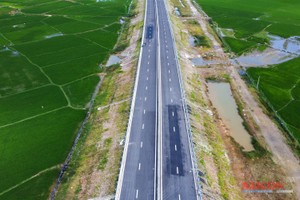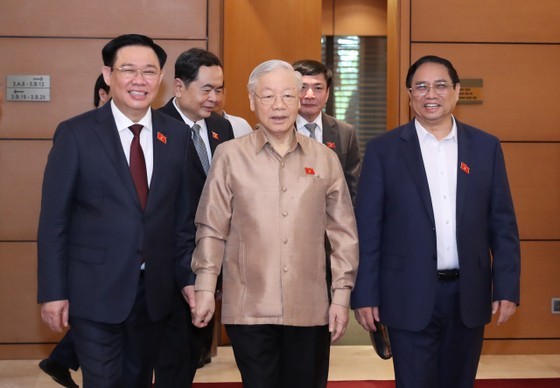 |
Party General Secretary Nguyen Phu Trong, and state leaders at the the 15th National Assembly |
The Ministry is preparing to complete procedures so that it and local administrations can organize a promotion conference to call for investment in transport infrastructure. At the same time, it is necessary to promote attracting private investment through deploying toll collection franchises and auctioning toll collection rights.
The question and answer session today took place as part of the ongoing sixth meeting of the 15th National Assembly (NA) in Hanoi under the chair of NA Chairman Vuong Dinh Hue.
Deputy Pham Thuy Chinh from the Northern Province of Ha Giang had a different opinion about private investment attraction in Public-Private Partnership (PPP) projects. Some people thought that increasing the proportion of state capital involved in PPP projects would attract private investors whereas she was afraid that if the proportion of state capital in PPP projects was so high, they would easily become another form of public investment.
According to her opinion, what the State needs to do is to ensure the correct implementation of its commitments in PPP projects. These obligations are implemented through the State buying back the project in case of state error, ensuring commitment to balance capital and sharing when reducing revenue. These issues have been regulated in the PPP law, when and only when the state fully implements its commitments can it attract private investment.
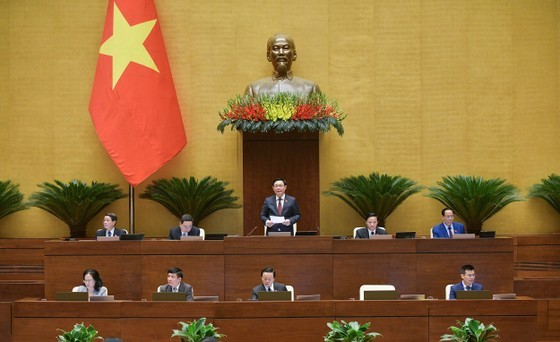 |
The 15th National Assembly (NA) in Hanoi under the chair of NA Chairman Vuong Dinh Hue |
Minister of Transport Nguyen Van Thang said that after the PPP Law was issued, not many businesses have been attracted to pour their investment into PPP projects. Currently, the country has 5.2 million cars, particularly, the rate of cars in Hanoi and Ho Chi Minh City is approximately 50 percent; uneven distribution would result in difficulties in attracting capital to PPP projects.
Additionally, since 2016, Vietnam has had 70 PPP transportation projects, but there have been many hiccups along the way to carry out projects and unresolved problems have been affecting businesses’ trust.
Many projects are due to have their fees increased but have not yet been increased because they are related to price management and CPI consumer price index management. Some projects have not yet been paid back. Investors will ask for loans from commercial banks but when banks see a risk in implementing a project, banks hardly disburse the money, so businesses cannot carry projects out.
Regarding solutions, the Ministry of Transport is gradually working with ministries and agencies to advise the Government and the National Assembly. One of the factors attracting businesses to invest in PPP projects is increasing the state capital ratio, but that is not the decisive factor.
According to him, some other countries do not control the proportion of state capital involved in projects. Even in some projects, the State can participate up to 70 percent but the efficiency is not good, or the project can collect revenue whereas in some projects with high capital recovery, the State only pours 20 percent-30 percent of capital into projects.
It is important to change thinking when inviting investment in transport infrastructure. In the near future, the Ministry of Transport will complete regulations to call for investment in transport infrastructure at localities. At the same time, it is necessary to promote the attraction of business capital through implementing toll collection concessions and toll collection rights auctions. The ministry is planning to auction the toll collection rights so that businesses can participate further and the State withdraw capital to continue investing in transportation infrastructure.
Deputy Vu Tien Loc argued that the proportion of State capital in each PPP project must be based on their importance with priority to projects in remote areas, For example, the State’s capital in projects in disadvantaged areas can be up to 85 percent-99 percent. The Government needs to propose to the National Assembly to amend the PPP law. The government just poured around VND10 billion - VND20 billion into projects in the fields of health and education.
